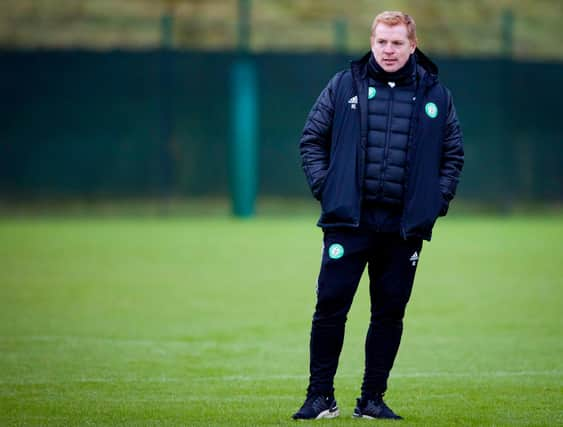Celtic boss Neil Lennon explains why he's become 'more boring' and reason for visiting his players


The unedifying, bilious campaign for his removal from post by sections of the support can be set apart from a general acknowledgement that the team’s dramatic slump this season has necessitated a change in management. Lennon probably would not make that distinction and would appear to accuse unnamed former players and former team-mates in the media of “selling their souls” in their reasons for turning on him.
“I think we live in a time where [the hysteria], it is not objective any more, it’s more personal,” said Lennon, who has led the club to five of the past six trophies contested, but whose team have failed to mount any sort of challenge to Rangers in a monumental campaign in which they were bidding for a craved record tenth title.
Advertisement
Hide AdAdvertisement
Hide Ad“I think that people don’t see you, or choose not to see you as a human being. The criticism and the abuse is a lot harsher. That’s why even with you guys I am a lot more guarded and try not to give too much away. Sometimes I think I’m boring when I’m doing press interviews. Because people just analyse everything you say or are selective in the quotes and use it against you for later on.
“I have seen it with other people, peers of mine, looking to court public opinion to get more followers, get more clickbait and that stuff. These people have sold their souls a little bit and I’m quite happy with the way I have dealt with things. My conscience is completely clear in terms of how I have gone about my work too.”
That has included a duty of care that has extended to doorstep visits to a number of arrivals over the season who have struggled to adapt to a new life in the lockdown circumstances forced by the global pandemic. “It’s been very difficult,” Lennon said. “I have been to players’ houses. Not inside obviously, but outside chatting to them and their partners. Just trying to support and encourage them. It was something I felt was required at the time with the level of abuse, criticism, whatever you want to call it. They are human beings at the end of the day. They have come up here in good faith. It is obviously not the picture or landscape they would have expected. By everyone’s predictions, we were hoping that your freedoms, restaurants, cafes would be open. The stuff players do in their social lives. We hoped there would be supporters back in the stadium. That’s been a huge loss for us.
“Listen, this is not exclusive to us, everybody is going through the same thing. But maybe they don’t have the demands that we had coming into such a significant season. And obviously the stress around the support coming into the season has exaggerated that. It’s not just about the football, it’s also about their health and wellbeing. I think it’s very important for a manager to stay on top of that. Particularly in the modern game. And in a season as abnormal as this.”
A message from the Editor: Thank you for reading this article. We're more reliant on your support than ever as the shift in consumer habits brought about by coronavirus impacts our advertisers. If you haven't already, please consider supporting our trusted, fact-checked journalism by taking out a digital subscription.
Comments
Want to join the conversation? Please or to comment on this article.